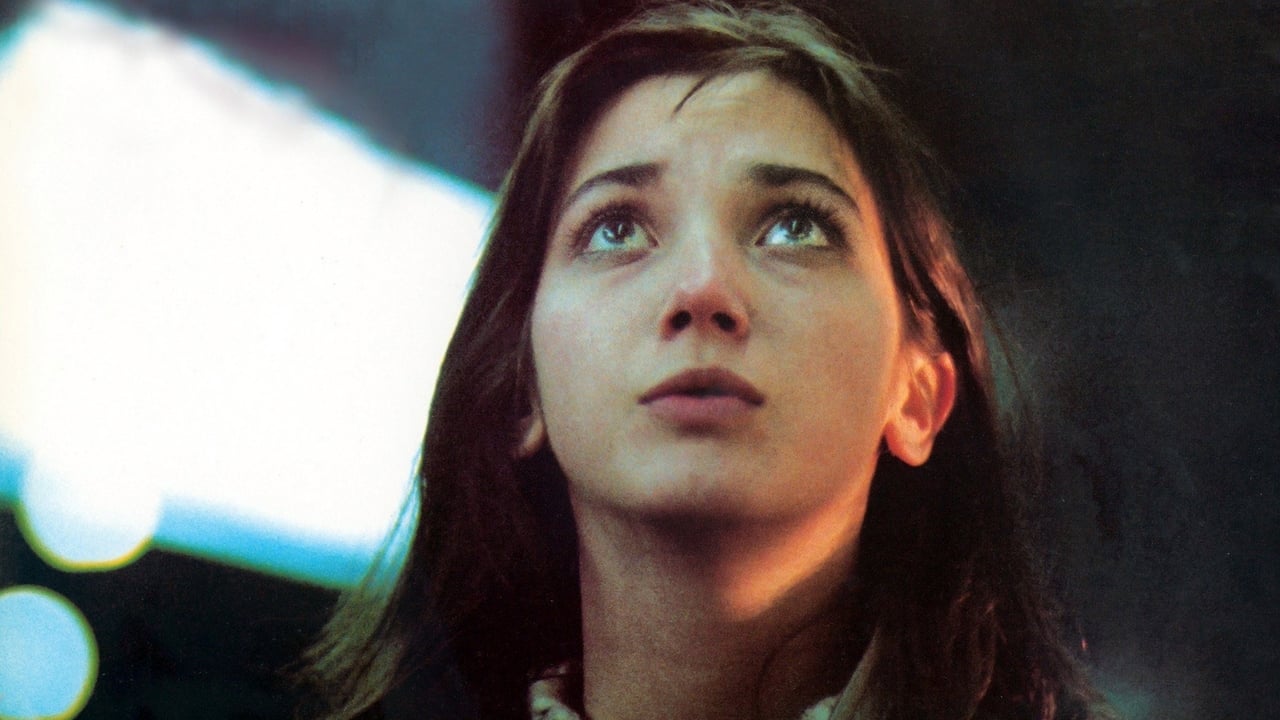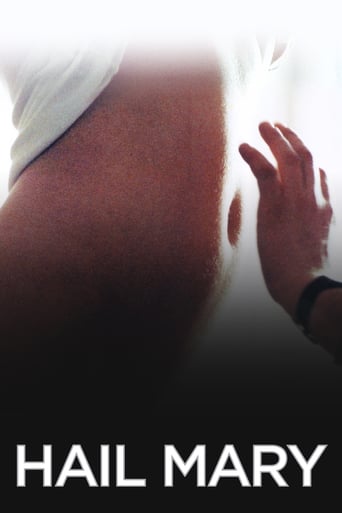

Really Surprised!
... View Moreone of my absolute favorites!
... View MoreExcellent, a Must See
... View MoreClever, believable, and super fun to watch. It totally has replay value.
... View MoreA Godard's movie hard to understand. A young girl is saying that she is pregnant without touching any man, like the Virgin Mary. However, nobody, including the the doctor do not believe. Lonelines, dissatisfaction, love is discussed very delicately. There is strong parallelism between the nature itself and the birth of a new person. in the movie everything is going aimlessly, only the basketball game is played meaningfully and seriously. Girls are playing basketball because it tries to create a contrast and draw our attention. The nature, the sun, the Luna are pictured gorgeously. In this great world human is just a boring and senseless creature. the music is interesting. very sudden appeareances of the sound tracks, just to underline the flow of the movie,
... View MoreJean-Luc Godard directs "Hail Mary". Opening scene: the reflections of moonlight on shimmering water. Second scene: a couple falling out of love. "Men think they enter women," he says absent-mindedly. "All women want something unique," she mumbles. Both characters are lost in dissatisfaction, he unable to find joy in droll penetration, she disillusioned with courtship rituals.The film then cuts to Mary (Myriem Roussel), a young woman playing basketball. Godard stresses skimpy clothes and sexualised bodies, Mary's bouncing ball echoing the many full moons – suggestive of the human body's many mysteries - which will later appear. Next scene: a classroom, in which a professor talks of "chance" and of there "not being enough time for life to have evolved on Earth". A female student – Eva, pretty and on the cusp of womanhood – finds these words disturbing. Life, the professor says, is "alien" and "programmed by a previous intelligence". It comes from "beyond humans", "beyond the womb", "beyond Earth". The professor then bluntly states that "humans are extraterrestrial". He then admits that he was persecuted for preaching this sacrilegious evangel. Eva finds him attractive.Of course on a reductive level, humans are "alien". All carbon comes from dead stars, and so all carbon based life is extraterrestrial to the planet it develops on. It's likely that the other essential components of life (and the early building blocks of amino acids, RNA and DNA) likewise originated outside earth. Regardless, Godard isn't really interested in science. For him, the "life impulse", the desire to "breed", "love", "copulate" and "reproduce", is an "alien impulse". The subject doesn't ask for these impulses, doesn't know how it acquires them and doesn't know from where they originate. Sexual desire, then, is something imposed and always stems from outside the body.Next scene: a plane rising above forests like a UFO. A sun then sets, ancient celestial bodies linked to the origins and yearnings of flesh. Mary is then visited by Uncle Gabriel (a reference to the Bible's Angel Gabriel), who tells her that she's pregnant. Mary, a virgin, is shocked (her mouth drops in a parody of classic Biblical films). "By whom?" Mary asks. "I sleep with no one!" The rest of the film watches as Mary immaculately conceives a child, whilst Eva has sex with the professor after biting an apple, the Biblical forbidden fruit.Like the New Testament, Mary's in a relationship with a Joseph, re-imagined here as a taxi driver. Mary reads books on Francis of Assisi, Joseph reads Tomorrow Dogs, about futuristic, post-desire human beings. "Where's the child from?" Joseph asks a now pregnant Mary. "The child must have come from somewhere!?" Godard cuts to shots of the heavens, flowers and fields. Sex is all around, but Mary rejects her body. She pines for a spiritual asexuality, wishes to resist temptations, wishes to preserve an idealised version of romantic love, but her hand creeps toward her crotch and she finds herself masturbating frenetically. "All men are god's shadow," she cries. "God is a vampire, here not to deliver us from sin but profit from pain!" Later, quoting St Francis, she says: "The spirit acts on the body, breathes through it, transfigures it, veils it to make it less disgusting than it is." But the film itself denounce St Francis' words: the spirit does not ennoble flesh, but is that which debases it. The Creator is in your DNA and he's a kinky little fella. From here on, Mary hates "god", hates "nature", hates the earth, flesh and sex itself. These are desires forced upon her, a kind of rape or biological imposition.Gabriel beats up Joseph and accuses the bespectacled man of being blind. He then teaches Joseph that all desire is the Alien Other's desire, but to nevertheless leave room for Mary's own wants and wishes, insofar as they exist. From here on, the self-obsessed Joseph learns how to touch, love and penetrate Mary by pulling away from her body. To respect and love "her own" desire and to perceive and undercut the power relations between people. From Joseph's failures of perception springs his redemption, his newfound ability to see and accept the freedom of others, and accept his and their own dis-empowerment in the face of a life-force that uses and abandons. For Godard, love is unconditional only when it recognises corporeal facts and Joseph's "pulling away" constitutes the film's only sacred act."Hail Mary" abounds with reflections, light always splattering across the surfaces of water. Mary talks of humans catching "only the shadow of love", love a reflection in which the true form of the "desired object" is misinterpreted. And this reflection is always deformed and not "ours" anyway. This becomes literal later in the film when the son Mary gives birth to is shown to "not belong" to Joseph. "He is not my father!" the child says, before running off into Nature. "I must tend to my father's affairs!" he yells, like a kid returning to daddy's embrace. Mary lets him go. Joseph still thinks personal desire, semen and offspring constitute some kind of ownership."Hail Mary" is arguably the best film in Godard's "body quartet" ("Slow Motion", "Passion", "Carmen", "Hail Mary"), all preoccupied with holes, orifices, vaginas and mouths. The rest of the film reverses Christian mythology, such that instead of a virgin immaculately conceiving a god who is free from sin and who dies because he unconditionally loves sinners, we have a humanity which is raped by an invisible life-force which perverts humans and instills in its children a desire to breed, f***, own and control. Fittingly, "Mary" itself ends with a shot of a vulgar hole: Mary's mouth adorned with lipstick, the girl attempting to claim her body, or make holy and beautiful that which might not be.8.9/10 - Masterpiece.
... View MoreIt's hard to believe that a film which attracted so much attention that even the Pope bothered to deal with it (and condemn it) could be so disappointing, but it is. Maybe it takes a Godard connoisseur to really appreciate his work here; for most others, it's so pretentious and incoherent that it borders on unwatchability. You've been warned! (*1/2)
... View MoreThe soundtrack from start to end is the best piece of music I ever heard in the cinema. This is a devote, sincere movie. Look out for censored copies! I got one with the best scenes missing.
... View More